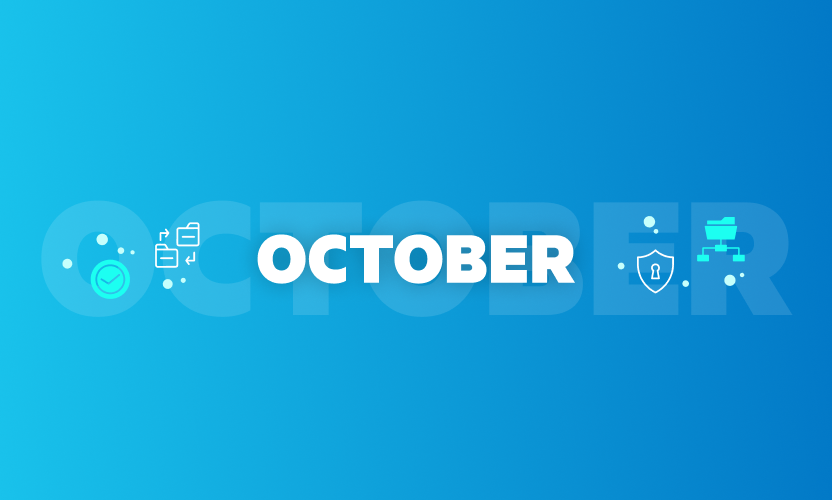Egnyte in the News
"iPads bring hospital board to paperless era"
By Sarah Day
Juneau Empire
April 30, 2011
Bartlett Regional Hospital board members are no longer drowning in a sea of paper and are enjoying a more efficient way of doing business - they're embracing technology and using iPads.
Administrative Assistant Toni Petrie came up with the idea to go paperless and with the help of Jeremy Ludman, Physician Systems Administrator, they researched how to turn the board paperless.
They use an independent storage service called Egnyte, where Bartlett gives permissions to board members and administrative employees. Petrie uploads board and committee packets to the site and members can download them. Ludman said the system isn't platform prohibitive, so a member could use any computer or device to download the information.
"We did some research on the applications and services that offer solutions that provide secure HIPAA (Health Insurance Portability and Accountability Act) compliant access via a native iPad app," Ludman said. "We had done a trial run and selected the Egnyte service."
Ludman said they chose iPads because it was a simple, easy to use device for the board members instead of going with laptops.
"It seemed like the best fit," he said. "Instead of holding a stack of paper in your hand you've got the iPad so you can thumb through the pages, make your annotations and review documentation in a paperless environment."
Petrie said they looked at different tablet PCs and favored this one because of the cost.
She was interested in the transition from paper to digital for two reasons: it takes a lot of time to assemble the thick board packets, which range from 100-200 pages a month per packet (not including committees), and the second is the amount and cost of going with paper.
The annual cost of producing paper packets is about $6,000. The cost of the iPads, with the purchase cost amortized across the expected four year life span, is $3,600 a year.
Petrie assembled data that they used an average of 4,000 sheets of paper per month, with average postage of mailing the packets of $6 each (about $120 a year), and employee time used to put together all sub-committee and board packets at $350 a month.
The employee time used to assemble electronic packets is $112 a month.
Ludman said aside from the initial research, the IT department really doesn't have anything to do with the iPads now. Petrie takes care of uploading the content and that's about it.
"It was a great transition, with all the feedback that I've received, it's been pretty seamless and I've heard nothing but positive feedback," he said.
While the cost savings is relatively small in the scheme of the hospital's multi-million budget, it still adds up.
Hospital board members find the iPads, which they began using in January, a huge improvement over paper packets.
"I was being buried in paper," said board chairwoman Kristen Bomengen. "I'm finding them very useful. My initial response is I was concerned about the expense and I was concerned how we were going to transition. At the same time, I had just spent two days on working on clearing out paper from my office. I've been on the board since 2006 and I am buried. My file cabinets are largely dedicated to hospital matters. While I had the concern about the cost I was delighted that we might be able to escape from the paper."
Bomengen likes the efficiency in the technology because she can search through months worth of packets in an instant, finding past information on a subject the board is discussing. This also includes the many hospital committees, and a lot of that information gets duplicated in the monthly full-board meeting.
Bomengen doesn't consider herself tech-savvy, with her computer knowledge self-taught. She does use an iPhone and found the transition to using the tablet computer fairly easy with few hiccups.
Board member Kevin Sullivan loves the transition as well.
"I think they're great," he said. "They're green, they save a lot of paper. All of the related documents are basically a touch away. Everyone can see the same thing at the same time."
Sullivan also was initially supportive of the idea because his law firm went paperless a long time ago. He said it's made that organization more effective and efficient and believes any business environment would benefit from it.
Sullivan said he's not very tech-savvy and isn't interested in new technology unless it has a purpose.
"For me it's simply a tool and I realize its efficiencies," he said. "I learn what I need to do to get it to work. If it doesn't perform a function or an efficiency in a measurable benefit from the start, I'm not interested in it at all."
Sullivan also appreciates that the system is basically a portable archive system. In the past, the board would discuss an item that had been brought up two months before. The likelihood of a majority of members bringing those 100-plus-page packets from several months prior was zilch.
"Now, we all go right to that packet, that subscription, all at the same time without having to haul all this information around or have a staff person dig it up," he said.
Board member Linda Thomas had many of the same sentiments as Sullivan and Bomengen.
"I was worried about the security of the information," she said. "We were assured that wasn't an issue, it was very carefully researched. That was my big concern was security. As far as usability they're great. It's a huge advantage. It's a real advantage to go back quickly and look at historical information. Trying to go back and dig through paper files is a nightmare. I am excited that we have them and it's a great improvement."





